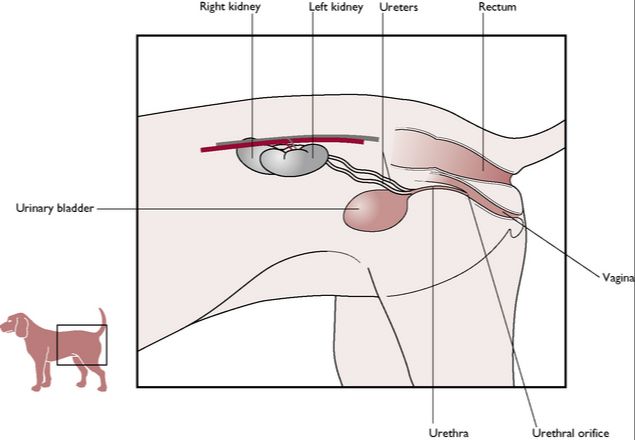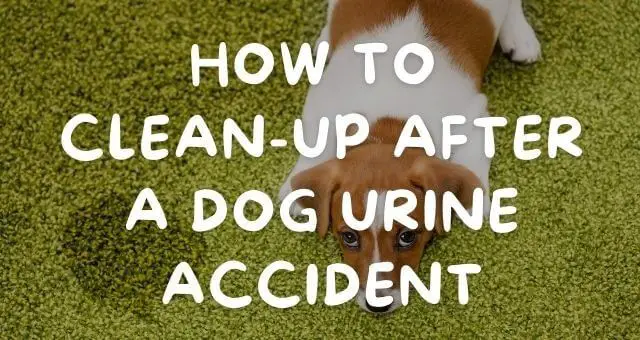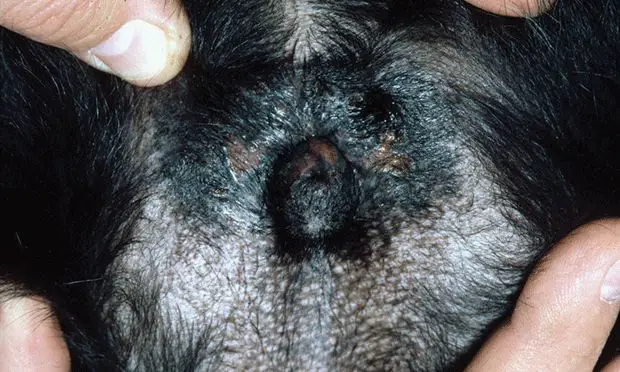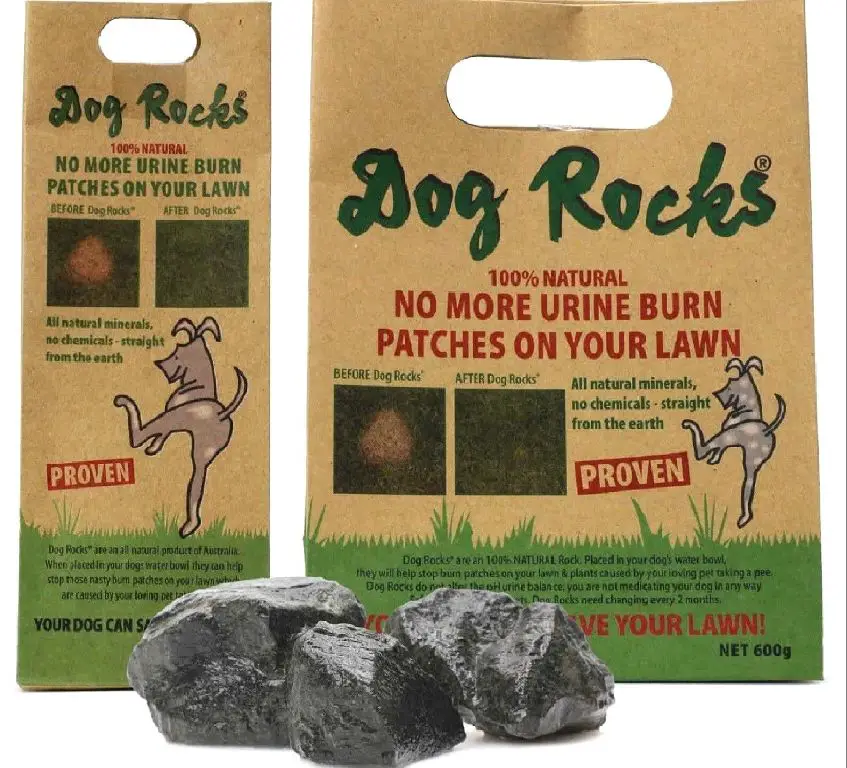What are Dog Rocks?
Dog Rocks are a product marketed as a solution to eliminate urine odor from dogs. The rocks are placed in a dog’s water bowl with the claim that they will change the pH balance of a dog’s urine to reduce or eliminate the smell.
According to the company behind Dog Rocks, the active ingredient in the rocks is a type of purified zeolite. Zeolites are microporous minerals that can absorb odors and chemicals. The idea is that when the zeolite in Dog Rocks comes in contact with a dog’s drinking water, it will release trace amounts of minerals like magnesium, calcium, and sodium.
These minerals are supposed to get absorbed into a dog’s system through drinking and alter the pH of their urine. Dog Rocks claim that this will make the urine less acidic, resulting in less ammonia production and odor. The company states that the rocks can fully deodorize urine in 4-6 weeks with consistent use.
The Science Behind Dog Urine Smell
The smell of dog urine is primarily due to three components within the urine: uric acid, ammonia, and some volatile sulfur compounds. Uric acid contains nitrogen and breaks down into ammonia. The ammonia molecules then go through chemical reactions with the acids in the urine to produce very smelly compounds like ammonium and sulfate ions, which produce a powerful strong odor. How strong the urine odor is depends on the concentration and dilution of these compounds, as well as environmental factors that can intensify the smell.

Ammonia has a very pungent odor. The chemical reactions between the ammonia and other urine compounds create volatile gasses that can make the smell even stronger. Higher concentrations of uric acid and ammonia mean more of the smelly compounds are produced. The pH of the urine also affects the chemical reactions. Higher pH (more alkaline) promotes more chemical reactions that result in strong odors. Dilution and proper cleanup of urine can help reduce smell, but as long as uric acid and ammonia are present, some odor will remain.
The takeaway is that uric acid and ammonia in dog urine are the main culprits. The chemical reactions between them produce the compounds that make old or accumulated urine emit a strong unpleasant odor. Understanding the chemical components is the first step to controlling and eliminating urine odor.
Do Dog Rocks Eliminate Urine Odor?
Dog Rocks are a popular product marketed to pet owners as a solution to eliminate the unpleasant ammonia odor caused by dog urine. The manufacturers of Dog Rocks claim that the product prevents the nitrogen in urine from converting into ammonia gas, thereby reducing or eliminating urine odor.
According to the company, Dog Rocks contain a proprietary combination of minerals such as magnesium, zinc, and potassium that inhibit the conversion of urea into ammonia when placed in a dog’s water bowl. However, there is limited scientific evidence available to support these claims.
The few studies that have examined the effects of adding minerals to dog food or water to control urine odor have had mixed results. Some found a modest reduction in ammonia emissions, while others found no difference compared to control groups.
Anecdotal evidence from pet owners who have used Dog Rocks is also mixed. Some dog owners report a noticeable reduction in urine odor after using the product for a few weeks. They say their homes and yards no longer have a strong urine smell. However, many other reviewers say they detected no difference in odor despite using Dog Rocks consistently.
Overall, there is not yet convincing evidence that Dog Rocks effectively eliminate urine odor. More rigorous scientific testing is needed to substantiate the claims made by the manufacturers. While some pet owners are satisfied with Dog Rocks, others feel the product did not live up to expectations. Considering the mixed user reviews, it may be wise to try less expensive remedies or speak to your vet first if odor remains an issue.
Potential Drawbacks of Dog Rocks
Although many pet owners have had success with Dog Rocks for controlling pet urine odor, there are some potential drawbacks to be aware of:
Some veterinarians have expressed concerns about the safety of these products, as the mechanism for how they work is not entirely clear. There is a potential they could alter the pH balance of your dog’s urine or have other unintended effects on your pet’s health. As with any supplement, it’s a good idea to consult with your vet before using Dog Rocks if you have any concerns.
Dog Rocks may also not be effective in all situations. For dogs with certain health conditions like urinary tract infections or incontinence, the underlying medical issue will need to be addressed first. Dog Rocks also may not eliminate odor from carpet or fabrics where the smell has already set in.
For senior dogs or pets who are not drinking enough water, the rocks could potentially make their urine too concentrated if they are not urinating frequently enough. It’s important to monitor your dog’s hydration and health while using any odor control product.
While Dog Rocks can help control pet odor, they do not address the root cause of your dog peeing in unwanted places. This behavioral issue will require training and addressing any underlying causes like anxiety or inadequate potty breaks.
Tips to Reduce Dog Urine Smell
While Dog Rocks may help control urine odor, there are other effective methods to reduce unpleasant smells around your home.
Cleaning Products: Look for pet odor eliminating cleaners that use powerful enzymes to break down urine molecules. Vinegar is also great at removing urine odors. Be sure to thoroughly clean any areas where your dog goes frequently.

Let It Dry: Blot up urine promptly and allow the area to completely dry. Lingering moisture allows smells to persist. You can place a fan to speed up drying time.
Baking Soda: Sprinkle baking soda liberally on carpet, furniture, dog beds, or other fabrics and let sit for a few hours before vacuuming. The baking soda will absorb and neutralize odors.
Clean Routinely: Make a habit of wiping down floors, cleaning crates, washing dog beds, and vacuuming frequently. Don’t allow urine to accumulate over time.
Odor Absorbers: Place open boxes of baking soda or activated charcoal around your home to proactively absorb odors.
Air Filters: HEPA air purifiers can capture airborne particles that carry odors and improve indoor air quality.
Watch Their Diet: Foods and treats high in protein or acidity can cause more concentrated, odorous urine. Provide lots of water to dilute your dog’s urine.
With some diligent cleaning, odor control products, and attention to your dog’s bathroom habits and diet, you can keep your home fresh without relying solely on Dog Rocks.
When to See a Vet About Urine Odor
If your dog’s urine has a particularly strong or unpleasant odor, it may be a sign of an underlying medical issue that requires veterinary attention. Some signs to watch out for include:
Urinary Tract Infection

Dogs with UTIs often have foul-smelling urine. The infection causes an increase of bacteria in the urine, leading to a more pungent odor. UTIs also cause dogs to urinate more frequently but in smaller amounts. If you notice any changes in urinary habits along with smelly urine, contact your vet.
Bladder or Kidney Stones
Crystals or stones in the urinary tract can create a very concentrated, ammonia-like urine smell. Stones can cause discomfort, difficulty urinating, blood in the urine, and excessive licking of the genital area. Seek veterinary care if you observe any of these signs.
Diabetes
Increased glucose levels in diabetic dogs cause their urine to have a sweet, syrup-like smell. Uncontrolled diabetes leads to excess sugar in the urine, which promotes bacterial growth and a more pungent odor. Diabetic dogs also drink and urinate more. Talk to your vet if you notice these symptoms.
While smelly urine on its own may not require an urgent vet visit, a veterinarian can run tests on your dog’s urine sample to check for signs of infection, crystals, glucose levels, and other important indicators of health. Don’t hesitate to call your vet if your dog’s urine odor seems abnormal or concerning.
Caring for Your Dog’s Urinary Health
A dog’s urinary health can impact urine smell in a big way. There are several things you can do to support your pup’s urinary health and potentially reduce urine odor:
Monitor Water Intake: Make sure your dog has access to fresh, clean water at all times. Dehydration concentrates urine and can make the smell stronger. But too much water can lead to frequent urination and accidents. Pay attention to find the right balance for your dog.
Feed a High-Quality Diet: Pick a dog food that supports urinary health with ingredients like cranberries, antioxidants, omega fatty acids, and low ash content. Avoid foods with fillers that your dog can’t digest fully.
Ensure Regular Exercise: Regular movement and activity keeps things flowing properly through the urinary tract. Make sure your dog gets outdoor time for walks, play, and chances to relieve themselves often.
Note Any Changes: Monitor your dog for any differences in urinary patterns, drinking, accidents, or discomfort. Changes could signify a potential health issue requiring veterinary attention. It’s important to catch problems early.
Supporting your dog’s overall health and wellbeing will provide benefits beyond just reducing urine smell. A healthy pup is a happy pup!
The Bottom Line on Dog Rocks
Based on the available information, Dog Rocks may help reduce urine odor to some degree by controlling the pH balance of your dog’s urine. However, they do not completely eliminate all urine smell. The rocks can lower urine pH to help neutralize ammonia odors. But other compounds in urine can still produce some lingering odor.

While Dog Rocks may be helpful, they should be seen as just one potential tool in managing urine smell, not a cure-all. Proper house training, cleaning messes promptly, giving your dog ample outdoor time, and other tactics are also important. Overall, Dog Rocks could provide some odor reduction, but likely will not stop urine smell on their own. Consider trying them as a supplement if odor is an issue, but have realistic expectations on the level of impact.
Other Odor Control Options
While Dog Rocks have become a popular product for controlling pet urine odor, there are a few other options pet owners can consider:
Enzyme Cleaners
Enzyme cleaners work by breaking down the compounds in urine that cause odors. They help remove stains and smell from surfaces and fabrics. Enzyme cleaners need to be applied directly to problem areas and allowed to soak in to fully neutralize odors. They may require reapplication over time but are an effective odor removal tool.
Indoor Potty Systems
Indoor potty systems like artificial grass patches, pee pads, or litter boxes can contain odors. The pee is absorbed and waste can be immediately disposed of before smells spread. Indoor potties need to be replaced and cleaned regularly to continue working well. They keep smells contained instead of removing them.
Odor Absorbers
Odor absorbing products like baking soda, charcoal bags, and cat litter can soak up urine smells when placed near problem areas. These need to be replaced regularly as they absorb odors. Odor absorbers are inexpensive but act more as masking agents than removing smells entirely.
Compared to Dog Rocks which focus on preventing odors at the source, other solutions rely more on cleaning up smells after the fact. For long-term odor control, Dog Rocks can be a set-it-and-forget-it solution. But enzyme cleaners and indoor potties can also be useful, especially for pet accidents on carpets and fabrics where smells linger.
Focus on Your Dog’s Health and Happiness
While urine odor can be unpleasant, it’s important not to become so focused on eliminating smell that you neglect other aspects of your dog’s health and wellbeing. Your dog’s happiness and quality of life should always be the top priority.
Make sure your dog receives plenty of exercise, mental stimulation, affection, and a nutritious diet. Keep up with veterinary checkups to monitor your dog’s overall health. Address any behavioral issues that may be causing inappropriate urination. And consider investing in obedience training, which can strengthen your bond with your dog.
Rather than obsessing over urine smell, focus first on being a responsible and caring dog owner. Tend to all of your dog’s needs to ensure they live a fulfilling life. The most important odor to eliminate is neglect or lack of attention towards your furry friend. Prioritize their health and happiness, and the urine smell will seem insignificant in comparison.